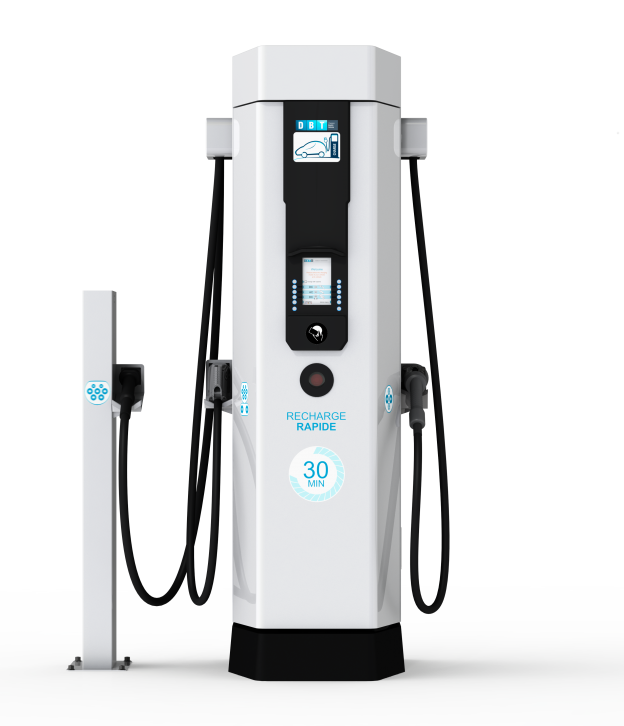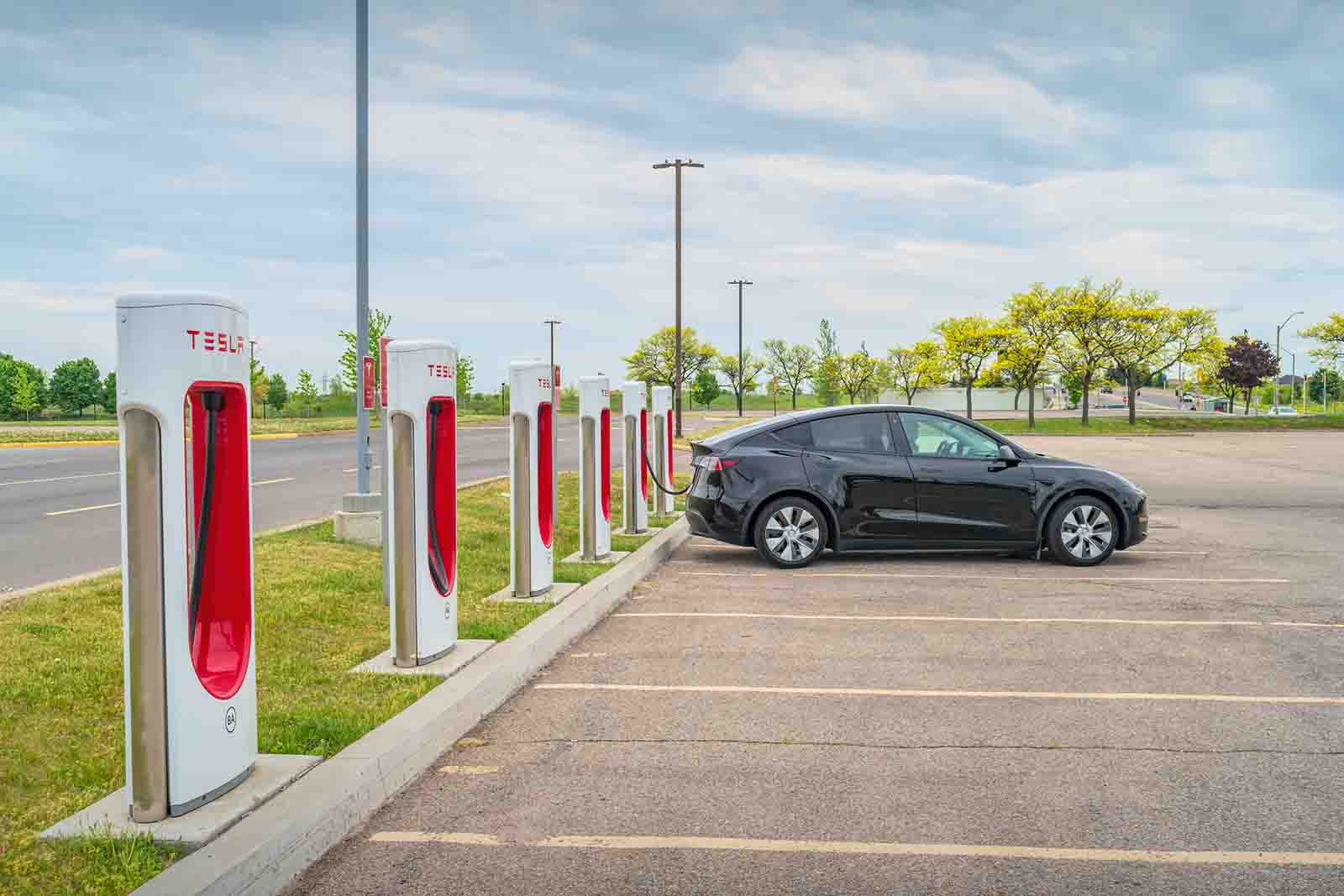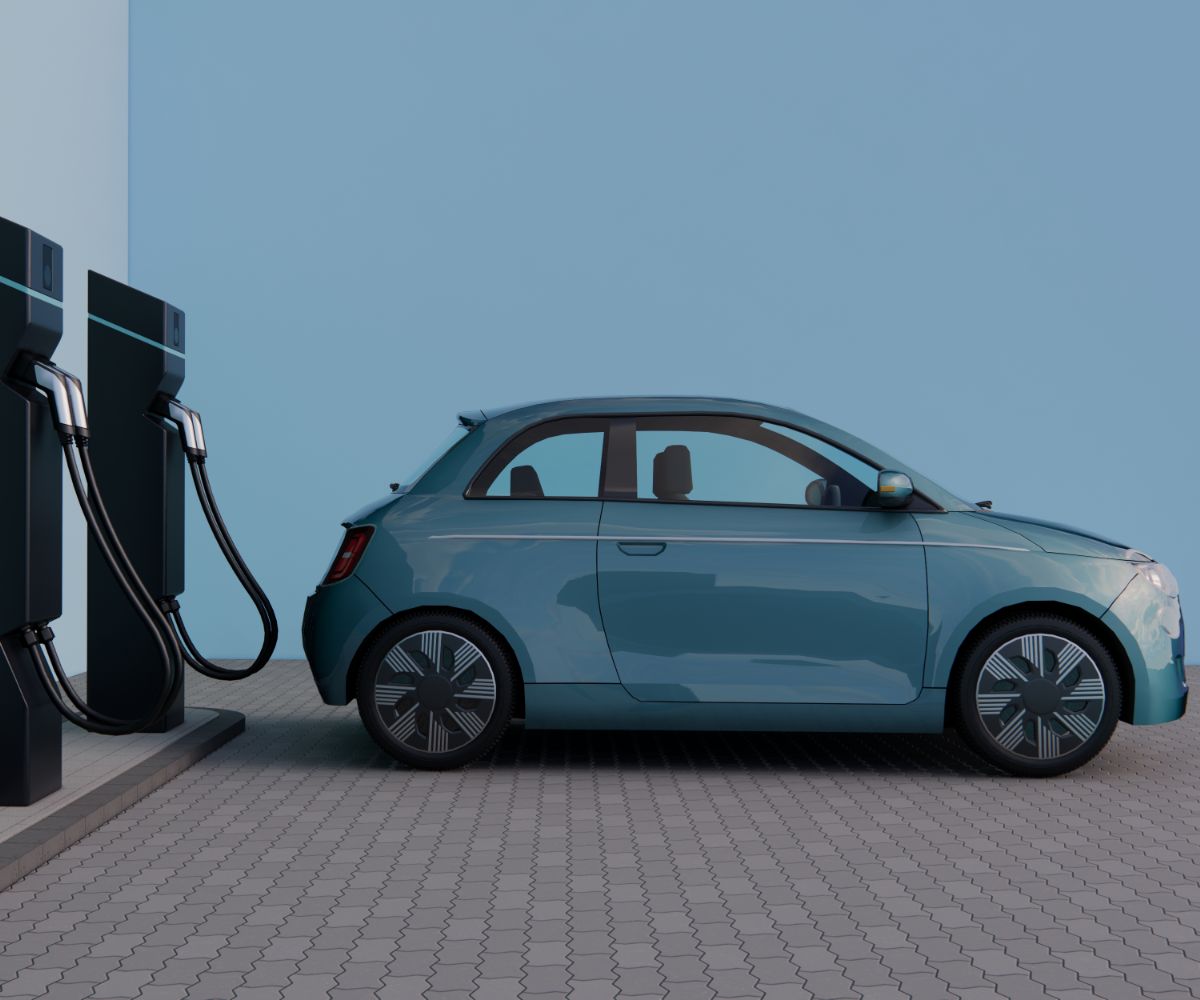DataField is committed to helping you build that network to help you become a key player in the EV charging space. Now is the right time to start putting infrastructure in place to meet the increased need for efficient and reliable commercial electric vehicle charging equipment. We are well-versed in helping a variety of companies plan and implement commercial EV charging stations that are efficient, reliable, and cost-effective.
Soon enough, EV charging stations will be more widely available than gas stations as more people switch over to a sustainability mindset. With an increased interest in renewable energy, many consumers are opting for their next car or truck to be an electric vehicle. However, EV charger accessibility is still quite limited in some areas.


Establishing or expanding your charging station network could allow you to take advantage of federal government funding via the Infrastructure Investment and Jobs Act. The Act is helping fund a nationwide effort to increase the EV charging network accessibility and is something DataField wants to help you take advantage of!
Designing EV charging systems that are both scalable and efficient is critical to meeting the growing demands of electric vehicle (EV) adoption. At DataField, we take a forward-thinking approach to EV charging infrastructure by engineering systems that not only support current electric vehicle technology but are also ready to expand as usage scales.
Our design process begins with a thorough analysis of site conditions, power capacity, and anticipated usage patterns. We integrate Level 2 and DC fast charging stations based on user needs and grid availability, ensuring that each site operates at optimal efficiency while reducing unnecessary load on the local utility.
Scalability is built into every system we design—whether it’s through modular hardware, smart charging software, or renewable energy integration. Our team ensures your EV charging station can adapt to future vehicle types, increased traffic, and evolving regulations, making your investment resilient and future-proof.
Efficiency is not just about energy; it’s about layout, user experience, and operational ROI. Our engineers optimize cable management, charger placement, and network connectivity to streamline both maintenance and customer satisfaction. We also leverage real-time data analytics and demand forecasting tools to enhance load balancing and reduce downtime.
With DataField, you’re not just installing chargers—you’re designing an EV charging system that scales with technology, business growth, and environmental responsibility.
Here are some reasons why charging station companies should choose DataField as a partner to establish their smart charging network:
One of the biggest challenges that charging station companies face is finding the right locations for their electric car charger stations. EV owners need charging stations that are conveniently located, easy to access, and have enough charging capacity to meet their needs. We have the expertise and knowledge to help you identify the best locations for your charging stations, considering factors like:
We’ll work with you to ensure that your charging stations are strategically placed in high-traffic areas, making it easy for EV owners who live in the community or are passing through to find and use them.


In addition to planning the location and type of charging stations, we can also help you plan the necessary electric vehicle infrastructure network to support them.
This includes assessing the electrical capacity of your chosen locations, ensuring that there is enough power available to meet the charging needs for a good user experience, and navigating the complex permitting and regulatory process. We’ll work with you to ensure that your car charger installation meets all local, state, and federal requirements, ensuring our plans are ready for safe and efficient installation.

Another challenge that charging station companies face is ensuring that their EV charging station design is compatible with diverse types of EVs.
With so many different makes and models on the market, it can be challenging to ensure that your combined charging system can accommodate all of them. At DataField, we stay up to date with the latest EV technology and can help you choose the right types of charging stations for your target market. Whether you need Level 1, Level 2, or DC fast charging, we’ll help you choose the best options that meet your customers’ needs.


Our team understands cost is a critical factor for charging station companies. We’ll work with you to find the most cost-effective solutions that meet your needs so you can maximize your return on investment and stay competitive in the market.

By providing a service that is in high demand, electric vehicle charging network companies can generate additional revenue and attract new customers. Depending on the pricing model you choose, you can earn revenue from the charging stations themselves or from the increased foot traffic and customer loyalty they generate. In fact, some businesses have reported that installing EV charging stations has helped them increase sales by up to 10%.
This FAQ section answers the most common questions about EV charging station design, addressing concerns, misconceptions, and offering practical advice for potential designers, operators, and investors.
EV charging station design includes three primary components: hardware (chargers, connectors, and enclosures), software (network management, payment systems, and analytics), and infrastructure (power supply, grid connectivity, and site planning). All three work together to ensure the station operates efficiently and meets user needs.
Selecting the right location requires analyzing traffic flow, accessibility, user demand, and proximity to amenities. High-traffic areas like shopping centers, office complexes, and highway rest stops are ideal. Additionally, ensure the site has sufficient electrical infrastructure and complies with local zoning regulations.
The types of chargers depend on the intended users.
DC fast chargers are best for high-traffic areas like highways and commercial hubs, offering rapid charging for users on tight schedules.
Costs vary depending on the type of chargers, number of units, site preparation, and infrastructure requirements.
DC fast chargers are significantly more expensive, costing $50,000 to $100,000 or more per unit due to higher power requirements and infrastructure upgrades.
Power infrastructure must address electrical load calculations, transformer sizing, and grid connectivity. Load balancing systems are critical for optimizing energy distribution, and incorporating renewable energy sources like solar and wind can enhance sustainability. Future-proofing infrastructure for higher power outputs and scalability is also essential.
Renewable energy integration involves installing solar panels or wind turbines to generate electricity on-site, combined with battery storage systems to store excess energy. Hybrid systems that combine multiple renewable sources with traditional grid power create a reliable and sustainable energy supply for charging stations.
Revenue streams include charging fees, advertising, partnerships with local businesses, and government incentives. Pricing models may involve pay-per-use fees, subscription plans, or dynamic pricing based on energy demand and time of day. Advertising and sponsorship opportunities can also provide additional income.
EV charging station software includes network management systems for real-time monitoring and control, payment processing systems for secure transactions, and data analytics tools for optimizing operations. Advanced software solutions also support features like reservation systems, user notifications, and dynamic pricing.
Yes, EV charging stations are designed with multiple safety features, including surge protection, temperature monitoring, and automatic shutdown mechanisms in case of faults. Compliance with industry standards like UL and IEC ensures chargers meet strict safety requirements.
Accessibility is achieved by following guidelines such as the Americans with Disabilities Act (ADA). This includes providing accessible parking spaces, clearly marked signage, and user-friendly interfaces. Ensuring chargers are placed at appropriate heights and are easy to operate enhances inclusivity.
Challenges include high initial costs, grid reliability issues, securing suitable locations, and ensuring compatibility across different EV models and charging standards. Addressing these challenges requires careful planning, collaboration with utility providers, and staying informed about emerging technologies.
Future-proofing involves designing for scalability, incorporating renewable energy systems, and using modular infrastructure that can be upgraded as technology evolves. Including ultra-fast chargers, advanced energy management systems, and compatibility with next-generation EVs ensures the station remains relevant.
Yes, many governments offer incentives such as grants, tax credits, and subsidies to encourage the development of EV infrastructure. Researching local, state, and federal programs can significantly offset the initial costs of building and operating EV charging stations.
Data analytics provides insights into station usage patterns, energy consumption, and user behavior. These insights help operators optimize station performance, plan for future expansions, and tailor services to meet user needs. Predictive analytics can also identify maintenance needs before failures occur.
To remain competitive, charging stations should offer reliable and fast charging, user-friendly interfaces, multiple payment options, and convenient locations. Incorporating advanced features like real-time availability updates, dynamic pricing, and renewable energy integration can also attract more users.
You’ll notice our commitment from day one, as we help your network for electric vehicle chargers. We believe that renewable energy is not just the right thing to do for the environment, but it’s also a smart business decision and great for scalability and reducing carbon emissions.
Here are some benefits that charging station companies can expect by working with us:
By providing convenient, reliable, and accessible charging options, product developers can enhance their customers’ experience and satisfaction. EV owners are more likely to choose businesses that offer charging options, and they’re more likely to become repeat customers of companies that offer sustainability and a great customer experience.
As more businesses make the switch to EV charging stations, it’s important for electric charging stations to stay ahead of the curve. By partnering with us, you’ll have access to a team of experts to build your network out efficiently, giving you a competitive advantage in the market. This can help you attract new customers and differentiate yourself from your competitors.
By providing electric car charging stations, charging station companies can demonstrate their commitment to sustainability and environmental responsibility. This can help to enhance your brand image and attract environmentally conscious customers.
As mentioned earlier, providing EV charging stations can generate additional revenue and attract new customers. By partnering with DataField, you’ll have access to cost-effective solutions that can help you maximize your revenue potential while helping the environment and protecting the climate. We’ll also help you understand the best practices when it comes to maximizing utility efficiency for electric vehicle chargers.
As more people switch to electric vehicles, the demand for charging stations is only going to increase. By planning and implementing charging stations now, electric vehicle charging network companies can future-proof their business and ensure that they are well-positioned for growth.
DataField is committed to providing unparalleled customer satisfaction. We understand that your success depends on the reliability and cost-efficiency of your commercial EV charging stations.
We’re here to help all businesses, large and small, achieve their goals.
